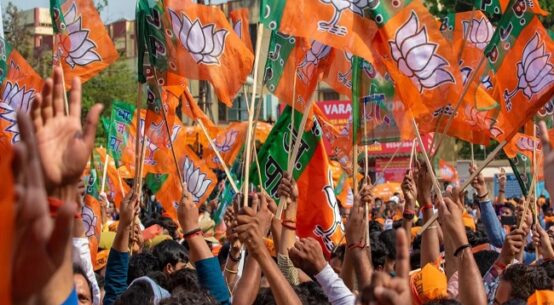In Pakistan whether in a tea shop, dining table, prime time TV talk shows and intellectual mantras are agog – who would be appointed as the next Chief of Army Staff (COAS) of Pakistan Army, having their General Head Quarters (GHQ) in Rawalpindi.
The military establishment has curved out to become a separate entity and a powerhouse outside the administrative capital of Islamabad. For more than seven decades the ‘militablishment’ has taken deep roots in Pakistan’s political road, according to Pakistan military researcher Dr Ayesha Siddiqa.
The politicians, civil bureaucracy, police administration and news organisations have learned lessons from the past to revere and fear the ‘militablishment’ or else dire consequences scratched them.
Going back to the gossip, who will be the next COAS – the ruling coalition parties, government and opposition led by Pakistan Tehreek-e-Insaf (PTI) chief Imran Khan are at loggerheads regarding who gonna be the COAS after the tenure of the military chief Lieutenant General Qamar Javed Bajwa expires.
PTI, was once a king’s party and Imran Khan was a ‘blue-eyed boy’ of Rawalpindi GHQ, but he was unceremoniously shown the exit. The hawks in Rawalpindi pressed delete from their good book, and Khan was deemed a spent fuel, which has lost its steam.
Earlier Prime Minister Shahbaz Sharif received six names for the appointments of the new chief of army staff (COAS) and chairman Joint Chiefs Of Staff Committee (CJCSC) from the Ministry of Defence.
Amidst speculation over who will receive the baton, there are also worries that things could turn very messy before the week is out, writes Pakistan’s prestigious newspaper, Dawn.
The present Prime Minister is the brother of the ousted Prime Minister Nawaz Sharif, who is living in self-imposed exile in London. He is considered a bone in the throat for Rawalpindi and prefers not to return to his homeland in Lahore for some time.
On the eve of the weekend, Sharif mooted Lt Gen Sahir Shamshad Mirza as the Chairman of the Joint Chiefs of Staff and Lt Gen Syed Asim Munir as the Chief of the Army Staff.
Let’s keep in mind that the PDM is a fragile alliance. A weak regime, not elected to power with the people’s mandate. The alliance came to power after Khan was ousted from parliament in a no-confidence vote in August this year by default. The opposition formed the PDM government and refuse to hold mid-term elections.
Although Khan appears to have recanted from his earlier resistance to the appointment of the new army chief by the Pakistan Democratic Movement (PDM) alliance government, there is continuing speculation that President Dr Arif Alvi, a PTI loyalist, can potentially spoil the game.
As the clock ticks, the wait begins. The coalition government will have to keep their fingers crossed from now. The nominations have to be vetted by the President of Pakistan. The final shot will be made by the President. Only then the two top Generals will be appointed to the coveted position.
Well, the Constitution allows the President to sit on any summary sent to him by the Prime Minister for 15 days, and then simply return it for reconsideration.
The prime minister can resend the same, unchanged summary back to the president, and this time it will be deemed approved even if not signed by the president — however, even for that to happen, the president can continue to sit on the matter for another ten days while doing nothing about it, writes Dawn’s political commentator Wajih Ahmad Sheikh.
In a catch-22, if the President delays the summary and the tenure of the incumbent chief expires, the senior-most general at the time will assume charge as the officiating army chief.
Meanwhile, Defence Minister Khawaja Asif is optimistic that President Alvi would not leave behind a “legacy of clashes” on the matter of the next army chief’s appointment.
The celebrated cricket star Imran Khan has categorically said that he will dissent against any name of COAS that has been selected by his arch-rival Nawaz Sharif will become “controversial” from the first day.
He fears that the COAS would become “Nawaz Sharif’s man” but does not doubt [the credibility of] whoever would be chosen as the army chief, saying that he instead was suspicious of the intentions of those who would appoint him.
He threatens that “President and I (Khan) have decided to ‘play within law, Constitution’ on COAS appointment.”
Hours after Khan’s remark contributes to a fresh controversy that President Alvi will be in touch with him for his opinion, Finance Minister Ishaq Dar said the government has ‘Plan B’ if President Alvi creates hurdles in the appointment of the new army chief.
A few days before his final exit from arms, Gen Qamar Javed Bajwa did not hesitate to lament that the “Army’s interference in politics for 70 years” made it [a] target of criticism.
He said that the military had started “its catharsis” and would remain apolitical in the future, emphasising that political parties should also reflect on their behaviour so that there was an “elected” government in the country instead of “selected” or “imported” one.
“Political stability is mandatory and the time has come for all political stakeholders to set aside their ego, learn from past mistakes, move forward and take Pakistan out of this crisis.”
In response to Gen Bajwa’s comments, Dawn in an editorial writes: Lastly, when the military eventually realised its mistakes in political interference, did it also rethink its policies on militancy, some of which had contributed to Pakistan’s greylisting by the FATF?
Saleem Samad, is an independent journalist, media rights defender, recipient of Ashoka Fellowship and Hellman-Hammett Award. He could be reached at <saleemsamad@hotmail.com>; Twitter @saleemsamad

